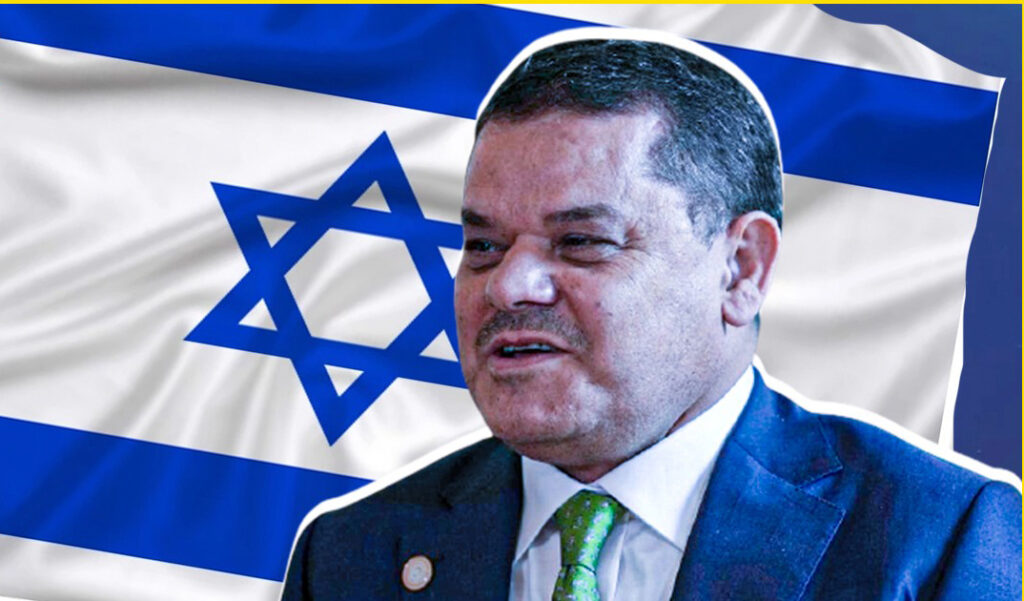Informed Libyan sources reported that Abd al-Hamid Dbeibeh, Prime Minister of the interim Government of National Unity in Tripoli, is working at an accelerated pace to normalize relations with Israel through Abu Dhabi. “Dbeibeh asked Aviv for US support to continue in the government in exchange for normalization and opening relations.”
Dbeibeh has formed a special team to coordinate with Israel, led by the Libyan ambassador to Abu Dhabi, Sofian Salem Al-Shaibani, the source, who asked not to be named, told The Libya Update. Al-Shaibani, who was assigned Ambassador to Abu Dhabi in January 2022, is also the son-in-law of Abdul Hamid Dbeibeh and holds Canadian citizenship. He previously assumed the position of Assistant to the Prime Minister for Communications and Informatics Affairs.
“Al-Shaibani met with representatives of the Israeli Mossad in the Emirati capital in early February, in the presence of Emirati figures, and asked for American support for the Dbeibeh government in order to remain in power,” the source said. He also asked that the presidential elections be postponed under the pretext of the lack of suitable conditions, “in return for normalizing relations with Tel Aviv and coordinating on a number of regional issues,” the source confirmed.
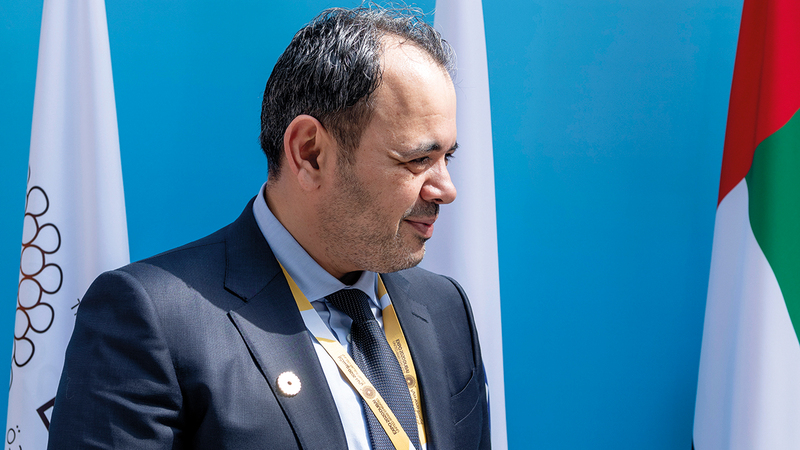
Dbeibeh also sent his Minister of Labor on February 25 to visit Jerusalem and Ramallah “in order to bring Palestinian labor to Libya,” as announced by Dbeibeh’s government. “Minister of Labor Ali al-Abed al-Ridha visited Al-Aqsa Mosque in Jerusalem to take some memorial photos after meetings with the Palestinian Authority in Ramallah to activate the agreement to bring 10,000 Palestinians to Libya,” the Dbeibeh government said in a statement.
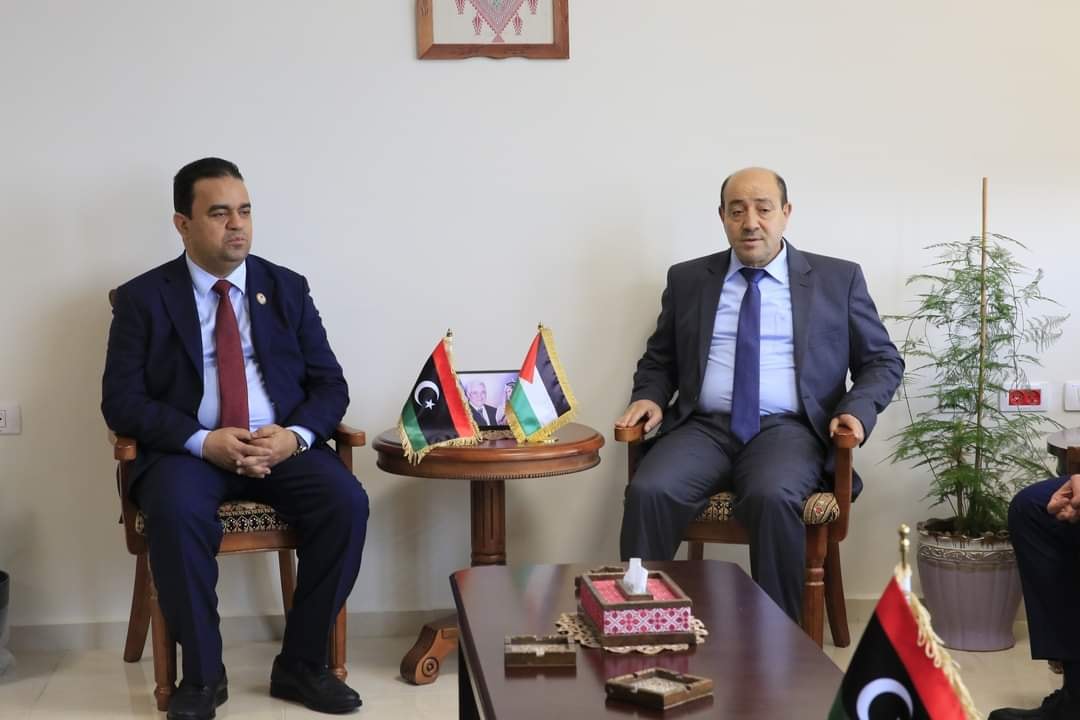
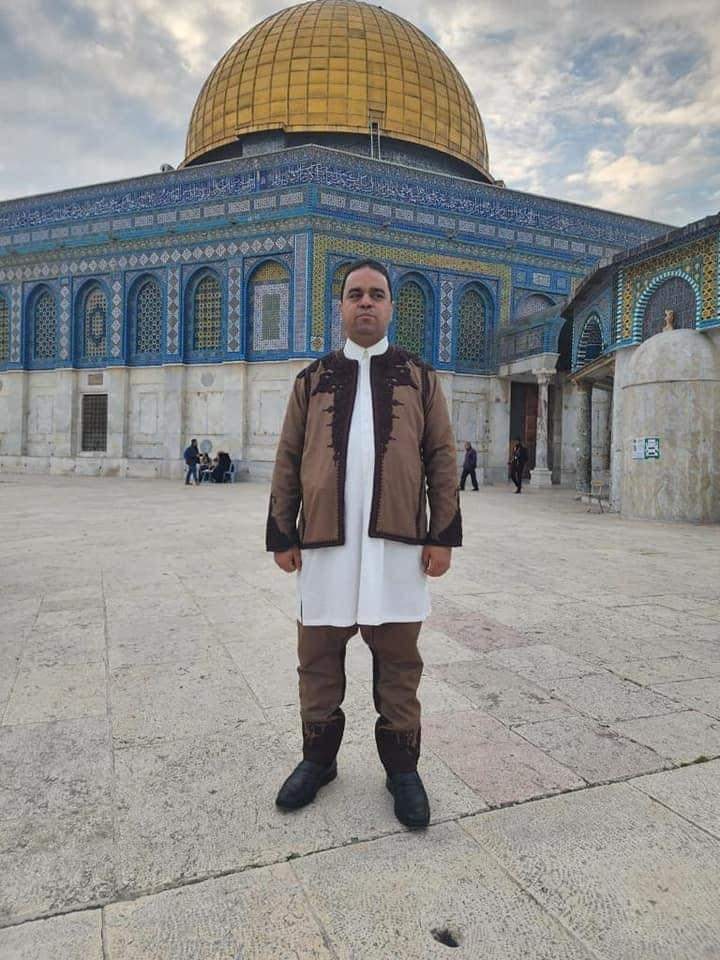
On the other hand, Muhammad Al-Raedh, a member of the House of Representatives and Chief of the General Federation of Chambers of Commerce, Industry, and Agriculture, visited the State of Palestine, accompanied by a number of Libyan businessmen. The reason for the visit was “to activate the memorandums of understanding signed between the two countries,” according to what was announced by the Ministry of Economy and Trade of the interim national unity government on February 14.
Al-Raedh, from Dbeibeh’s hometown Misurata, is considered a close ally of the Prime Minister and is known for supporting the government and its decisions. “He visited Jerusalem in coordination with the Israeli authorities and is believed to have delivered a message from al- Dbeibeh to Tel Aviv.”
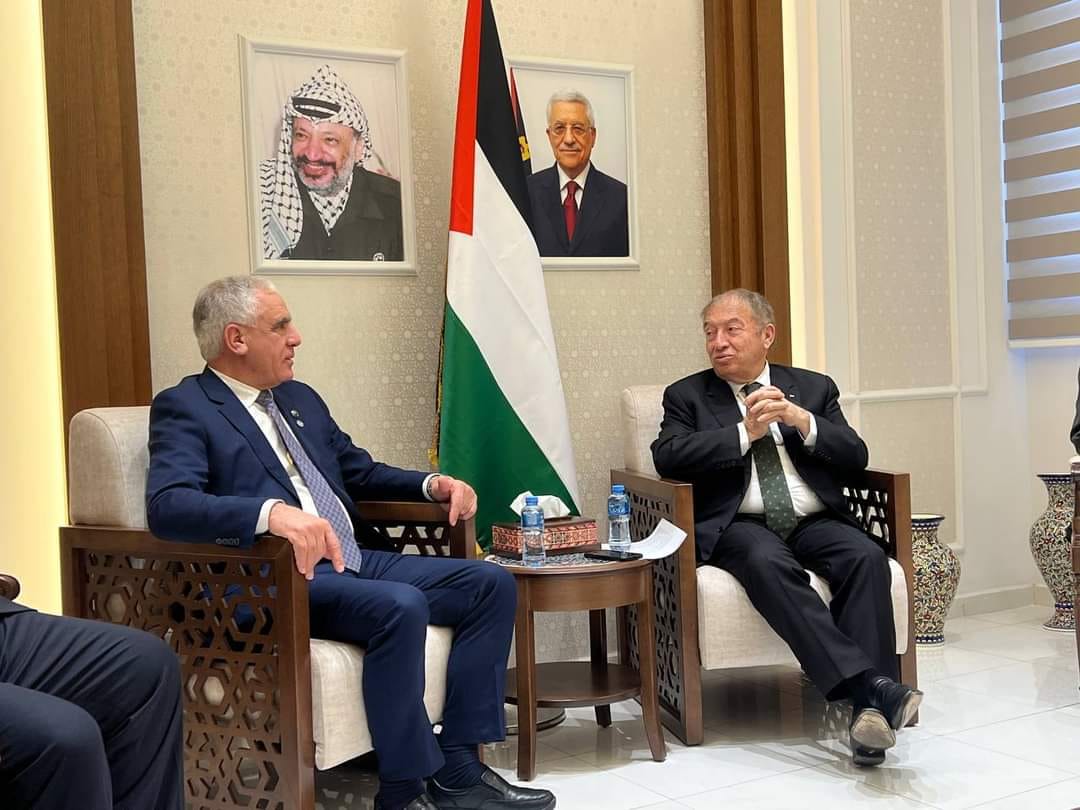
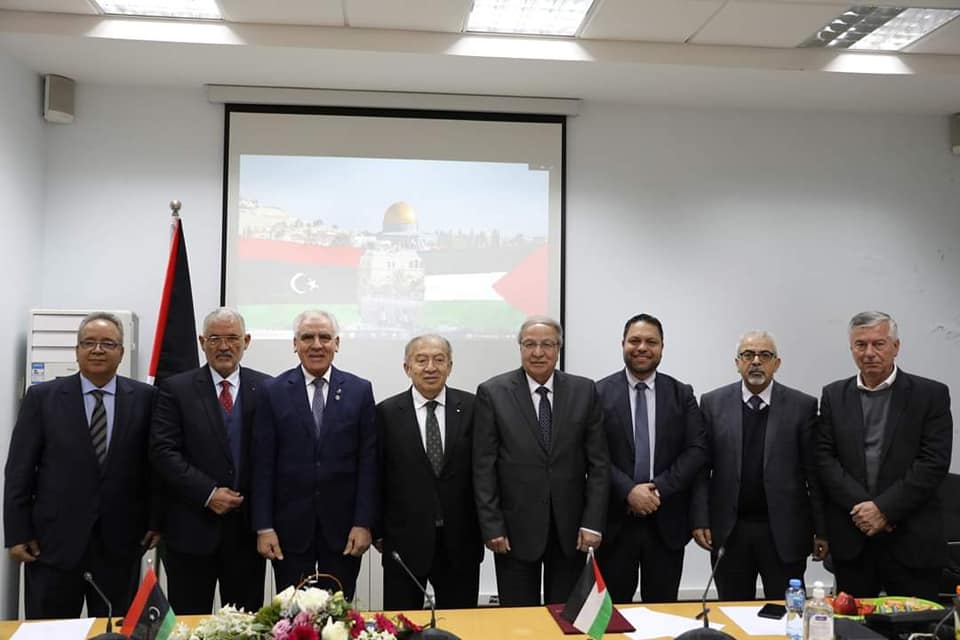
These recent visits to Jerusalem and Ramallah aroused resentment among Libyan circles due to their timing and the ambiguity surrounding them. Libyan law prohibits travel to Palestine and Israel for Libyan passport holders.
The State Council in Tripoli has also condemned the visits made by the Minister of Labor, Ali al-Abed al-Ridha, and member of the House of Representatives and Chief of the General Federation of Chambers of Commerce, Industry, and Agriculture, Muhammad Al-Raedh to the West Bank in occupied Palestine.
“The State Council expresses its fear that these visits will be a test of the water of the Libyan people, and a preparation for other stages of communication with the Israeli occupier,” the council said in a statement on Monday.
At the end of its statement, the Council called on “all political institutions and social components to take a firm stand against these acts,” which it described as “shameful.”
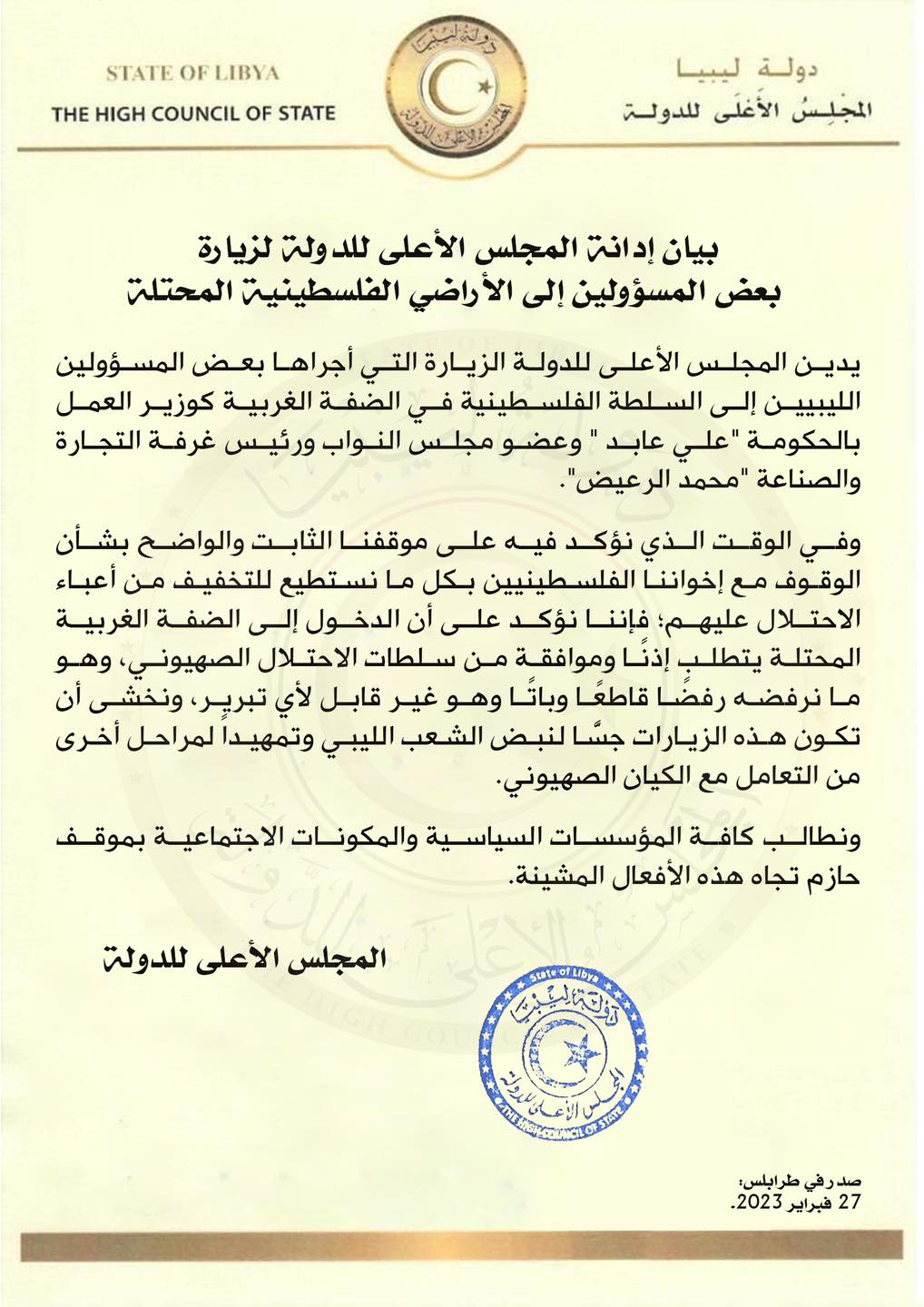
A statement of the High Council of State’s condemnation of the visit of some officials to the occupied Palestinian territoriesOn the other hand, the Israeli Jerusalem Post” website reported on January 12 that the head of Mossad, David Barnea, met with Libyan Prime Minister Abdel Hamid Dbeibeh in Jordan to discuss normalization.
The website mentioned in a detailed report that Barnea met with the Libyan prime minister to discuss normalization, “but the ongoing chaos in Libya may make this difficult.”
In turn, Abdel Hamid Dbeibeh, denied news about meeting with officials from the Israeli government or Mossad, stressing that “this did not happen and will not happen in the future.” “My position is firm and clear on the Palestinian issue,” Dbeibeh confirmed.
